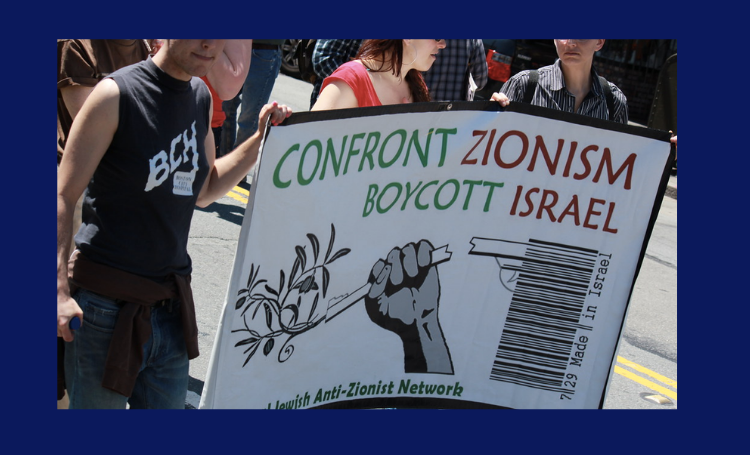Alex Ryvchin
Australian Institute of International Affairs, Sept. 2019
“The propaganda was highly compelling and steeped in long-established themes of Jewish bloodthirstiness, greed, corruption, manipulation and cunning. It would contend that the very existence of a Jewish homeland was not only a plot of imperialism, but a mortal danger to the peace of the world.”
The Arab-Israeli conflict traverses decades, manifests in regular wars, terrorism and endless political skirmishes in international forums. It is also a battle to establish narratives – victims and aggressors, Davids and Goliaths, oppressors and oppressed. Language and the meaning given to basic concepts form a key part of this battle. It is easy for Jewish people to establish a claim to the territory known as Judea and Samaria. The later formulation “West Bank,” coined by the Jordanians following their occupation of the area in 1948 is a bland geographic descriptor that strips the territory of its historical significance. The Associated Press recently stumbled into the morass of political language when it declined to identify the men who tortured and killed Israeli athletes at the Munich Olympic Games in 1972 as Palestinian terrorists, instead calling them “guerillas” and “gunmen.” There is also no term in the vernacular of the conflict that is misapplied and distorted more than “Zionism.”
Zionism, correctly understood, refers simply to the return of Jewish people to “Zion,” one of several names given to Jerusalem and the surrounding lands in which the Jews lived and governed in ancient times. In the late 19th century, the idea of returning to those lands shifted from a seemingly intangible ideal and wistful age-old expression of yearning for freedom, to a precise, secular, political movement.
Alex Ryvchin is co-chief executive officer of the Executive Council of Australian Jewry. His new book is “Zionism – The Concise History”
To view the original article, click here


